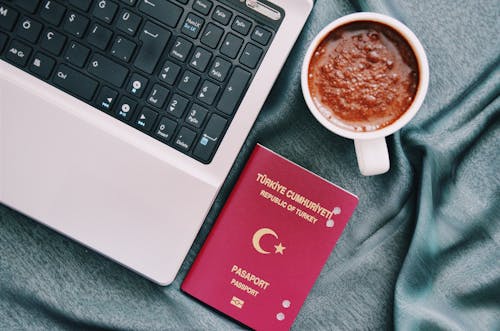Introduction:
In today’s interconnected global landscape, the passport stands as a symbol of mobility, identity, and access. It serves as a key that unlocks opportunities for travel, work, and exploration across borders. Beyond its physical form, the passport embodies the aspirations and rights of individuals to navigate the world freely. In this article, we delve into the multifaceted significance of passports, exploring their historical roots, contemporary importance, and future evolution.
The Historical Tapestry: From Ancient Scrolls to Modern Booklets
The concept of a document granting safe passage across territories traces back to ancient times. Early civilizations, such as the Roman Empire and ancient China, employed rudimentary forms of travel permits. These documents, often inscribed on papyrus or bamboo, provided travelers with a sense of security as they ventured into unfamiliar lands.
The modern passport, however, emerged in the aftermath of World War I, as nations sought to regulate the movement of people across borders. The League of Nations introduced standardized international travel documents, laying the groundwork for the passport system we recognize today. Since then, passports have evolved from simple paper certificates to sophisticated booklets containing biometric data and security features.
Identity and Sovereignty: The Role of Passports in Nationhood
At its core, the passport serves as a tangible manifestation of national identity and sovereignty. It encapsulates the rights and responsibilities of citizenship, affirming an individual’s allegiance to a particular state. Through the issuance of passports, governments assert their authority to control entry and exit from their territories, safeguarding national security and regulating immigration.
Furthermore, passports play a crucial role in diplomacy and international relations. They serve as diplomatic instruments, facilitating the movement of diplomats and officials between countries. The issuance of diplomatic passports symbolizes the recognition and acceptance of sovereign states within the global community, fostering diplomatic ties and cooperation.
Freedom of Movement: Empowering Individuals in a Globalized World
In an era characterized by globalization and interconnectedness, the ability to travel freely has become increasingly vital. Passports grant individuals the freedom to explore new horizons, pursue educational opportunities, and seek employment abroad. They enable families to reunite across borders, fostering cross-cultural exchange and understanding.
However, access to passports is not uniform across the globe. Disparities in passport power, visa requirements, and border policies create barriers for individuals from less privileged nations. This disparity underscores broader issues of inequality and injustice in the international system, highlighting the need for concerted efforts to promote equitable access to mobility rights.
Read More: Navigating the Skies: Understanding Airfare
Security and Technological Innovation: Safeguarding Borders in the Digital Age
In response to emerging threats such as terrorism and illegal immigration, governments have adopted increasingly sophisticated technologies to enhance the security of passports. Biometric features such as facial recognition, fingerprint scanning, and iris scanning have become standard components of modern passports, bolstering their integrity and authenticity.
Furthermore, the digitization of passport systems has streamlined border control processes, facilitating smoother and more efficient travel experiences for passengers. Electronic passports, or e-passports, incorporate embedded microchips containing biometric data and cryptographic features, making them resistant to tampering and forgery.
The Future of Passports: Towards a Borderless World?
As technology continues to advance and global challenges evolve, the future of passports remains subject to change. Some envision a world where physical passports are rendered obsolete, replaced by digital identity solutions such as blockchain-based credentials or biometric authentication systems. Such innovations could revolutionize the way we perceive and interact with identity, offering new possibilities for seamless, secure, and decentralized travel.
However, the realization of a borderless world remains fraught with challenges, including issues of privacy, data security, and geopolitical tensions. As we navigate towards an uncertain future, it is essential to uphold the principles of inclusivity, transparency, and human rights in the development and implementation of passport technologies.
Conclusion: Beyond Boundaries
In conclusion, passports transcend their material form to embody the aspirations, rights, and complexities of our interconnected world. They serve as symbols of identity, sovereignty, and freedom, shaping the way we perceive and navigate borders. As we contemplate the future of passports, let us strive to harness technology and innovation to create a more inclusive and equitable global society, where all individuals can exercise their right to explore and belong, beyond boundaries.








[…] Read More: The Vital Document: Exploring the Significance of Passports […]